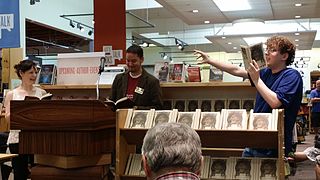A Quote by Roger Rees
It doesn't seem Shakespeare works if you turn him into a religion.
Related Quotes
One of the reasons [William] Shakespeare is so endlessly fascinating is that you can look at that figure from about 10 different angles: Caliban in Shakespeare's day was probably viewed as a sort of comic, barbarian type, but into the 19th century there were productions where Caliban was the hero. He's a potential rapist of a minor. Is that a good thing? No, it is not. On the other hand, Prospero's got him cooped up in a cave and tortures him if he doesn't do what Prospero wants. Is that a good thing? No. Shakespeare doesn't let you off easy.
I've done a lot of Shakespeare onstage, and I'm not convinced that the Earl of Oxford was the author of all those works, but I am convinced that the Stratfordian William Shakespeare was not. My feeling is that it was an amalgamation of many writers, in the same way that most films are a collaborative endeavor.
If you like poetry let it be first rate, Milton, Shakespeare, Thomson, Goldsmith Pope (if you will though I don't admire him), Scott, Byron, Campbell, Wordsworth and Southey. Now Ellen don't be startled at the names of Shakespeare, and Byron. Both these were great Men and their works are like themselves, You will know how to chuse the good and avoid the evil, the finestpassages are always the purest, the bad are invariably revolting you will never wish to read them over twice.
And there are Ben [Jonson] and William Shakespeare in wit-combat, sure enough; Ben bearing down like a mighty Spanish war-ship, fraught with all learning and artillery; Shakespeare whisking away from him - whisking right through him, athwart the big bulk and timbers of him; like a miraculous Celestial Light-ship, woven all of sheet-lightning and sunbeams!
The easy confidence with which I know another man's religion is folly teaches me to suspect that my own is also. I would not interfere with any one's religion, either to strengthen it or to weaken it. I am not able to believe one's religion can affect his hereafter one way or the other, no matter what that religion may be. But it may easily be a great comfort to him in this life-hence it is a valuable possession to him.
In the work of the greatest geniuses, humble beginnings will reveal themselves somewhere, but one cannot trace the slightest sign of them in Shakespeare ... I am not concerned with who wrote the works of Shakespeare ... but I can hardly think it was the Stratford boy. Whoever wrote them had an aristocratic attitude.



































